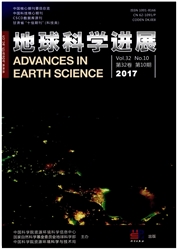

 中文摘要:
中文摘要:
本地居民对居住地景观的审美感知水平对于区域大尺度景观的保护与持续利用具有重要影响,这在相对欠发达但具有较高审美价值景观资源的地区意义更为重大。本文以云南省怒江傈僳族自治州为例,基于620份针对当地居民的调查问卷与现场调研,通过构建Logistic回归模型,分析了怒江州本地居民对居住地景观的审美感知状况及相关影响因素。结果表明,怒江州本地居民对于居住地景观的审美感知水平较高,有75.81%的受访者认为居住地周边景观是美的。对这一审美感知具有影响的因素共有8项,在直接影响因素中,是否在保护区内、行政村周边高程标准差具有正向影响;行政村到最近县城距离、是否认为近年生态环境恶化、是否认为旅游开发存在不好的影响、是否希望进入城市生活具有负向影响。在间接影响因素中,包括住房类型和家中是否有电视都具有正向影响。本文据此尝试提出提高怒江州居民对居住地景观审美感知水平、促进当地景观保护与持续利用的相关政策建议。
 英文摘要:
英文摘要:
The aesthetic perceptions of local residents towards residential landscapes are significant to the protection and sustainable development of regional landscapes, especially in underdeveloped areas with landscape resources of higher aesthetic value. Using Nujiang Lisu Autonomous Prefecture in Yunnan Province as a case study, we conducted questionnaires with 620 local residents and a logistic regression model to determine aesthetic perceptions and factors affecting these perceptions. We found that local residents in Nujiang hold a relatively high perception of their residential landscapes. A majority of respondents, 75.81%, believe their residential landscapes are beautiful. Eight factors were found to influence the aesthetic perception. In direct influential factors, administrative village located in the protected areas and the standard deviation of the elevation around the administrative village have positive influence; distance from administrative village to county town, the ecological environment has changed in recent years, whether tourism development has a negative impact and wish to live in the city have negative influence. In indirect influential factors, both residential house type and have a television at home have positive influence. Based on these results, we discussed relevant policy suggestions to maintain the aesthetic perceptions held by local residents of their residential landscapes and promote the protection and sustainable development of this valuable landscape in Nujiang.
 同期刊论文项目
同期刊论文项目
 同项目期刊论文
同项目期刊论文
 Major Function Oriented Zone: New method of spatial regulation for reshaping regional development pa
Major Function Oriented Zone: New method of spatial regulation for reshaping regional development pa 期刊信息
期刊信息
